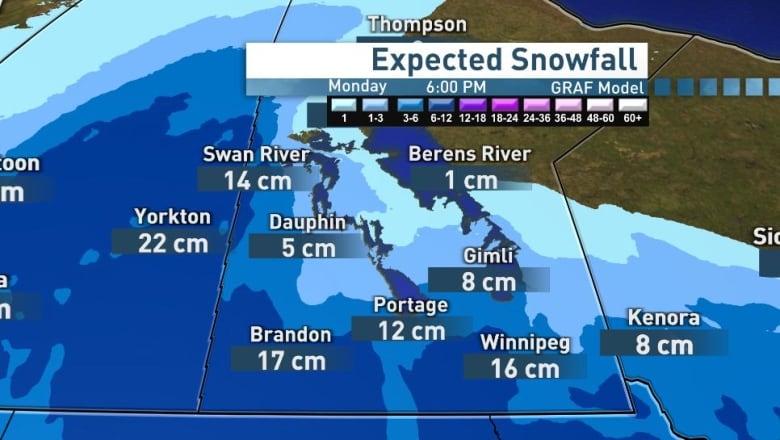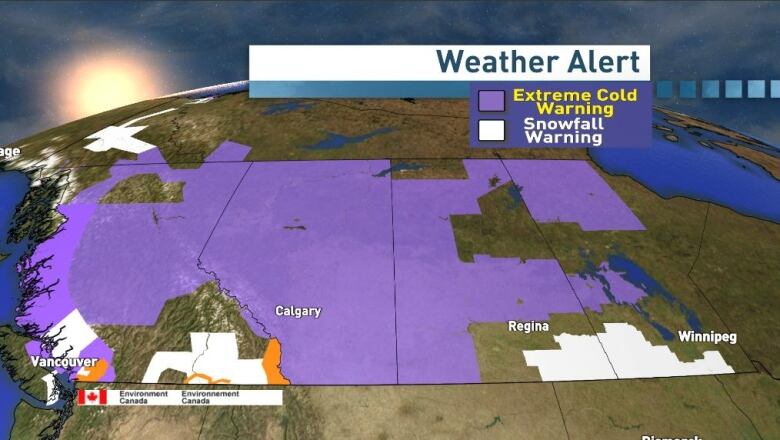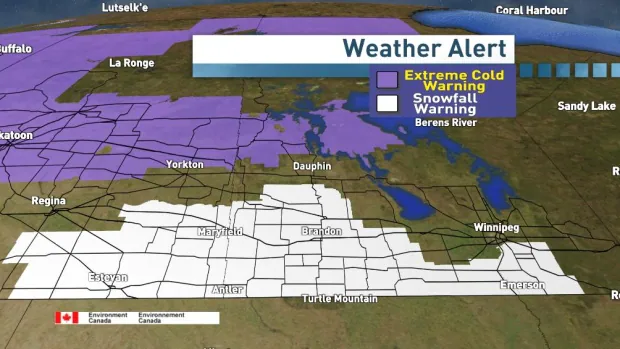Parts of southern Manitoba, including Winnipeg, and Saskatchewan can expect heavy snowfall on Sunday and Monday before a winter cold snap sets in.

Parts of southern Manitoba and Saskatchewan can expect heavy snowfall on Sunday and Monday before a winter cold snap sets in.
Environment Canada has issued snowfall warnings for southwest and extreme southern Manitoba — including the cities of Winnipeg, Brandon, Morden, Winkler, Steinbach and surrounding communities.
Ten to 20 centimetres of snow is expected, with heavy snow anticipated Sunday night and into Monday, the weather agency said.
In Saskatchewan, communities like Estevan and Moosomin can expect the heaviest snow.
“Really, overnight is when it’s going to be its heaviest, so we have snowfall warnings out for western Manitoba and extreme southern Manitoba as well,” said meteorologist Shannon Moodie.

Moodie said snow, at times heavy, will begin through the day Sunday in Saskatchewan before moving eastward into Manitoba Sunday evening.
The heaviest snow will be this afternoon and evening in Saskatchewan and overnight into Monday morning in Manitoba, she said.
It’s expected to taper off from west to east on Monday.
- Environment Canada weather alerts
“It’s a system that’s south of the border, and then there’s a trough associated with a system that’s poking up into the prairies that’s bringing the snow to the area,” Moodie said.
The snowfall warnings come as parts of western and northern Manitoba, as well as much of Saskatchewan, Alberta and British Columbia are blanketed in extreme cold warnings.

“Once the system moves through and then the cloud clears, there’s going to be a ridge that’s building in behind it,” said Moodie. “We’re going to see a return of the cold temperatures … the cold looks to stick around through the week.”
It could feel as cold as -50 with the wind in parts of northern Alberta overnight.
“I always love to give an end in sight,” she said. “But at this point, it looks like we’re going to be extreme cold for a bit, certainly, and definitely below normal.”
Meanwhile, winds gusting up to 60 km/h may create pockets of reduced visibility because of blowing snow, the weather agency said.
It urged people to prepare for quickly changing and deteriorating travel conditions, and said Public Safety Canada encourages everyone to make an emergency plan and a kit with drinking water, food, medicine, a first-aid kit and a flashlight.
Moodie said the snow and cold could make travel less than ideal on the Prairies.
“Certainly if you’re about to go traveling anywhere … definitely keep updated on the weather situation,” she said.

